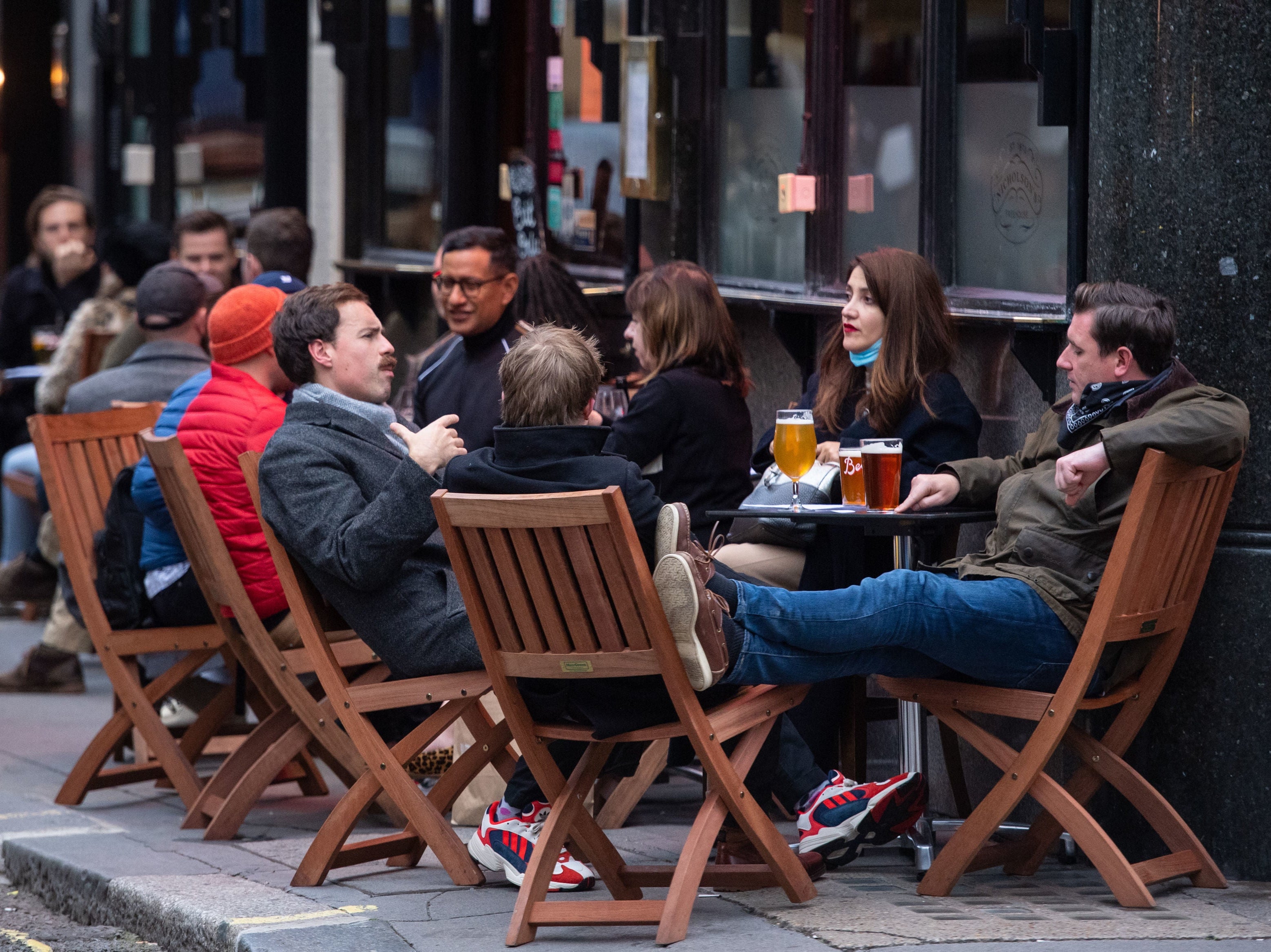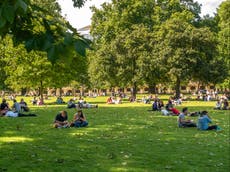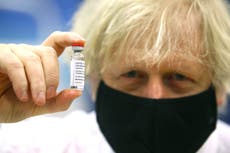Police preparing for mass celebrations on Boris Johnson’s lockdown exit dates
‘Don’t go silly because you can,’ appeals chair of National Police Chiefs’ Council
Your support helps us to tell the story
From reproductive rights to climate change to Big Tech, The Independent is on the ground when the story is developing. Whether it's investigating the financials of Elon Musk's pro-Trump PAC or producing our latest documentary, 'The A Word', which shines a light on the American women fighting for reproductive rights, we know how important it is to parse out the facts from the messaging.
At such a critical moment in US history, we need reporters on the ground. Your donation allows us to keep sending journalists to speak to both sides of the story.
The Independent is trusted by Americans across the entire political spectrum. And unlike many other quality news outlets, we choose not to lock Americans out of our reporting and analysis with paywalls. We believe quality journalism should be available to everyone, paid for by those who can afford it.
Your support makes all the difference.Police are preparing for potential violence and disorder as people celebrate the easing of England’s national coronavirus lockdown.
Boris Johnson announced a “roadmap” for the lifting of restrictions on Monday, including potential dates for the reopening of pubs and nightclubs.
Martin Hewitt, chair of the National Police Chiefs’ Council, said that although the prime minister said the dates could move depending on the virus and vaccination programme, many people were already planning celebrations.
“We all have to accept there is a psychological impact when people see those dates and think about those, and start to project forward to what they might be able to do – all those occasions and events, that’s inevitable,” he told a press conference on Thursday.
“There is a potential that people think the end is coming and they can be a little bit more relaxed about how they abide by the rules. I would say to people, try to resist that temptation.”
Mr Hewitt said he welcomed the provisional timetable because it allowed police to plan for changes to the law and the impact.
He said the coming months would be “challenging for policing”, as the Health Protection Regulations that enforce restrictions become more complicated and more people are outside their homes.
“When you have many more people out on the street, you have much more chance you’re going to get people coming together and violent situations occurring,” Mr Hewitt added.
“We are thinking about that and planning how we would manage that … we all know that the nighttime economy and the consumption of alcohol and other substances leads to violent behaviour.”
Senior officers are organising patrols and operations for key dates, and around potential local hotspots for large gatherings.
“We will be ready to deal with what we need to deal with,” Mr Hewitt said.
“We will make sure we are deploying in the right way, to make sure we can keep things under control as people get back into what we would have thought of as normality a year ago.”

Provisional statistics published on Thursday show that more than 26,000 fines were issued in England and Wales between 17 January and 14 February, bringing the total since March 2020 to around 69,000.
More than 270 of the largest £10,000 fines have been issued for holding a gathering of more than 30 people since the law came into force, and 485 £800 fines for participating in a gathering of more than 15 people.
Over 2,300 fines have been issued under face covering laws and 402 for people failing to self-isolate after arriving from a country on the quarantine list.
National police guidance states that officers must engage with suspected rule-breakers, explain the law and encourage them to follow it voluntarily before issuing a fine.
But officers have been moving more quickly to enforcement since November, because of worsening coronavirus transmission and the view that people should now understand lockdown rules.
Police have been given extra government funding for specific coronavirus patrols, and say they have been focusing on large events where the risk of infection is highest.
Mr Hewitt said there was a “hard core” of people who had been ignoring restrictions throughout the pandemic, and that many fines had been given at mass gatherings.
“There is no question that there’s a fatigue in the country among the population,” he added. “We’ve been living with this for 11 months, it’s really hard and it is very restrictive on people’s lives.
“There have been more people who have breached the rules and in the circumstances not taken the encouragement [to follow the rules] and we have given them a ticket.”
Mr Hewitt urged people to “be sensible and careful” so that the spread of coronavirus did not worsen again.
“We need to maintain that discipline because the last thing any of us needs is the virus rising again and we’re not able to go through that staged programme,” he said.
“I would appeal to people not to go silly because you can straight away [when restrictions lift]. Policing across the country will be preparing for that and we will be deploying appropriately so we can be out there to help people and keep people safe.”




Join our commenting forum
Join thought-provoking conversations, follow other Independent readers and see their replies
0Comments